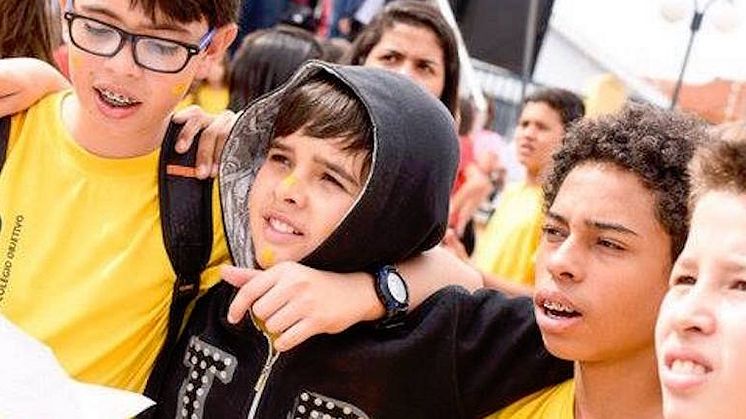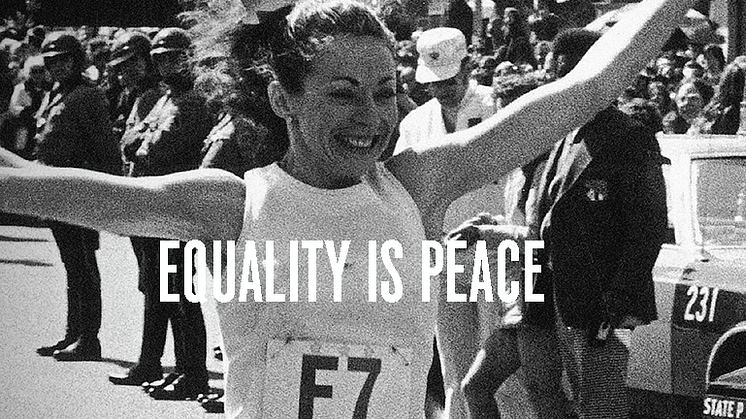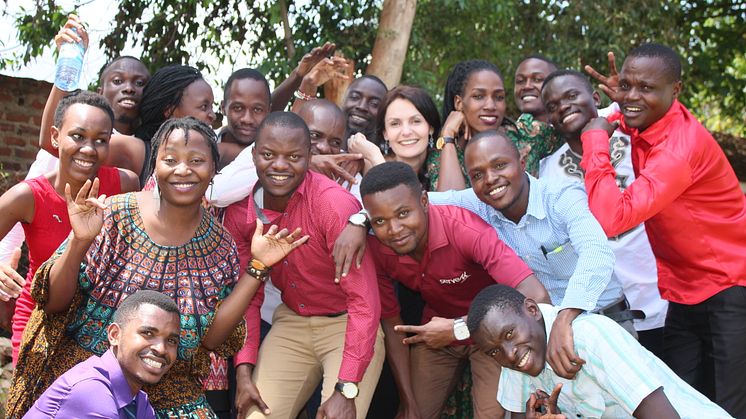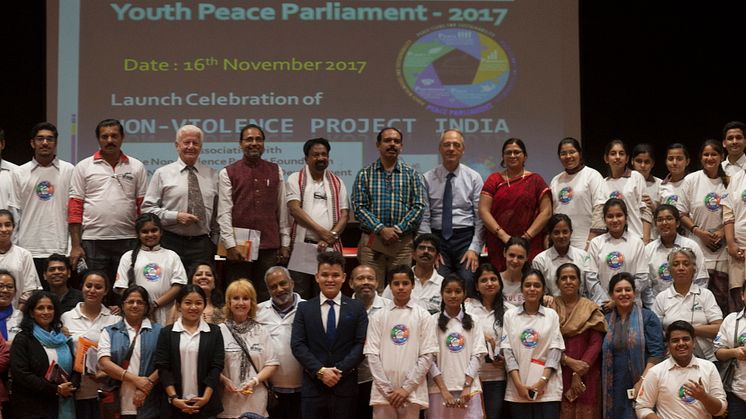
Blog post -
3 Reasons Why Social and Emotional Learning (SEL) is a Solution to Violence.
Have you ever been sexually harassed or abused? I have. Many times. And so have millions of young girls and women around the globe - according to 19 million tweets on #MeToo campaign. (2)
Have you ever felt depressed, not good enough, not pretty enough so you resorted to drugs, alcohol, crime or even thought about suicide? I have, and I am guessing you have too, together with millions of other people. Every day.
What we are talking about here are not just statistics, but a widespread epidemic of a day-to-day violence and individual suffering. The pain of children who are abused by people who should protect them, girls who are molested because they are girls, youth bullied by other youth, and people of all ages harming themselves.
Assuming that we are willing to move beyond feeling hopeless and helpless because the problem is 'just too big' - let's talk about solutions.
But firstly….
NO ONE IS BORN VIOLENT

Violence is a learned behaviour.
Learned directly or indirectly, consciously or unconsciously from family members, peers, teachers, society. Learned from movies, songs, video games.
It is also sometimes a response to abuse, neglect, exclusion, having low self-worth, inability to handle emotions such as anger, frustration or sadness.
So, we could argue that if people can learn how to be violent, they can also learn to be nonviolent. How?
Enter SEL.
SOCIAL AND EMOTIONAL LEARNING (SEL).
A growing network of programs is teaching youth and adults how to understand and express their emotions. Among their results: decreased aggression and violence.
SEL is "the process through which children (and adults) acquire and effectively apply the knowledge, attitudes, and skills necessary to understand and manage emotions, set and achieve positive goals, feel and show empathy for others, establish and maintain positive relationships, and make responsible decisions' (3)
In simple words, SEL is a combination of emotional intelligence (EQ) and other life skills.
Here are 3 reasons why SEL is a potential solution that promises to reduce violence and inspire culture of non-violence:
1. It develops emotional and cognitive self-awareness and self-management.
This is much more than just silencing our inner critic or running around trying to be positive. It is about learning to accept and love ourselves as we are; our ability to manage emotions, and about having a healthy dose of self-confidence and discipline to pursue our dreams.
If we can learn how to express our thoughts and feelings, ask for what we need and want, and resolve conflicts verbally, we can dramatically reduce violence.
2. It develops empathy and compassion.
In a world that is wonderfully and richly diverse, many seem to struggle with the very concept of diversity. The tendency to see each other in terms of 'us' and 'them' comes from our ignorance of how much we are actually connected and interdependent.
Empathy and compassion help bridge that divide. Empathy begins with the capacity to take another person's perspective, to walk in another's shoes. Compassion is 'empathy in action' - having capacity to take another person's perspective and also willingness and courage to help.
Very simply: people who are more empathic and compassionate are less likely to be violent, and more likely to display positive social behaviours, such as kindness and relentless courage and drive to serve and help others.
3. It develops creativity, critical thinking and responsibility.
In the most watched TED talk of all time, educationalist Sir Ken Robinson FRSA claims that "schools kill creativity" (4). If I think about the traditional school approach where students are presented with the material and are pushed into memorizing endless definitions and facts that mean little to them (and that they forget the very next day), then I tend to agree.
Traditional approach to education breads machines not creative humans, promotes passive followers and not responsible leaders.
Sir Robinson believes that creativity is the crucial 21st century skill if we really want to solve complex problems such as violence. We need critical thinking as well as imaginative and fresh ideas, and we also need to learn how to accept, appreciate and include diversity of people and their ideas.
Imagine, if you will, a room full of people sharing their stories, listening to each other, critically self-reflecting, together examining what thoughts or actions lead to violence, and coming up with creative solutions and courageous actions that drive the positive change in their homes, neighbourhoods, communities? These kinds of humans, these kinds of leaders are needed if we are serious about making positive change.

ONE MORE THING…
In case you are worried, SEL is not about throwing academic skills out of the window. Actually, it's about educating both hearts and minds. Students who participate in SEL programs perform measurably better in school than peers without exposure to SEL. (5)
They engage in fewer risky or unhealthy behaviours, are more likely to be employed, earn more, show more resilience, and are better able manage conflicts non-violently.
IN CONCLUSION…
SEL is not the only solution, yet the case for SEL is a strong one: it helps us heal from experiences of violence; it teaches us self-awareness and resilience; it nurtures compassion; it develops life and career skills essential in 21C; and it inspires individual and collective practice of being harmless to self and others.
I would call that a pretty good solution. Wouldn't you?
/ Ivana Busljeta
Email: ivana@nonviolence.com, www.nonviolence.com
-----
References:
1.UNESCO: Behind the numbers: Ending school violence and bullying (2019). Retrieved from: https://reliefweb.int/sites/reliefweb.int/files/resources/366483eng.pdf
2.Inquisitr. '#MeToo' Used more than 19 million times on Twitter. Retrieved from: https://www.inquisitr.com/5125740/metoo-hashtag-movement-sexual-harassment-tweets/
3.CASEL, Educating Hearts, Inspiring Minds. Retrieved from http://www.casel.org/what-is-sel/)
4.K. Robins: Schools kill creativity. TED Talks. Retrieved from: https://www.ted.com/talks/ken_robinson_says_schools_kill_creativity?language=en
5.The Aspen Institute. National Commission on Social, Emotional and Academic Development. Retrieved from: https://assets.aspeninstitute.org/content/uploads/2018/03/CDE-Practice-Base_FINAL.pdf


